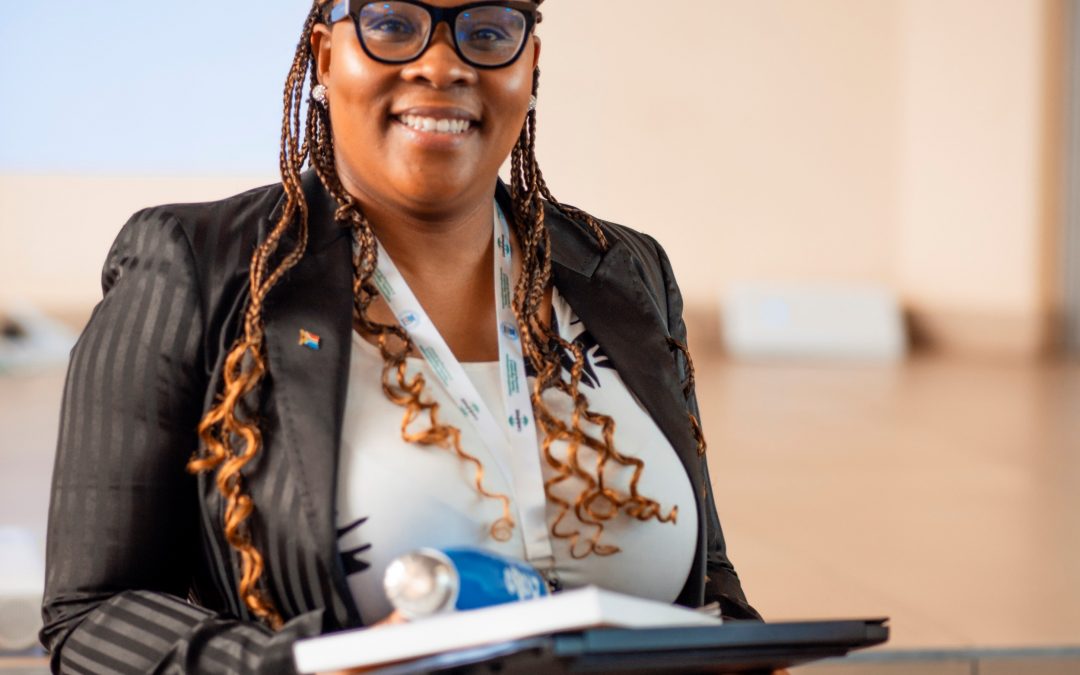By Enock Sithole
When Professor Sisanda Nkoala talks about journalism, she speaks with the authority of someone who has been both behind the microphone and at the lectern.
The award-winning academic, researcher and media leader began her career as a journalist at the public broadcaster, South African Broadcasting Corporation (SABC) before moving into higher education, and today she is on a mission to bring journalism academia and the professional media industry closer together.
“I was a practising journalist from about 2008 to 2016, mostly in radio,” she recalls. “I dabbled in television and community media and later worked for the public broadcaster. During that time, I started lecturing part-time at CPUT (Cape Peninsula University of Technology) and realised how much I enjoyed teaching and mentoring the next generation of journalists.”
That part-time job became a full-time vocation. For Prof Nkoala, teaching journalism is not a retreat from practice — it’s an extension of it. “Even though you are in academia, journalism is still a creative art,” she says. “You can’t teach students what you’re not actively engaged in.”
Today, she is a National Research Foundation (NRF)-rated Associate Professor at the University of the Western Cape (UWC), where she is based in the Department of Linguistics in the Faculty of Arts and Humanities. Her focus has shifted from teaching to research and leadership in media inclusion and diversity, but she remains firmly rooted in the world of journalism.
At UWC, Nkoala holds the Joint Chair in Media Inclusion and Diversity, shared with a partner institution in Belgium. The position, she explains, “looks at issues around representation, inclusion, and access in the media. We run projects that engage directly with the media industry, not only to research it, but to strengthen it”.
Over the past year, her chair has worked with the South African National Editors’ Forum (SANEF), the Association of Independent Publishers (AIP) and community journalism networks to deliver training and support for emerging newsroom leaders, especially women. “We recognised that while South Africa once led the world in women editors, those numbers have declined,” she says. “So, we collaborated with SANEF to mentor women and community journalists on leadership pathways.”
Another project tackled the fast-changing digital media environment. With support from the AIP, Nkoala’s team trained community journalists and students to launch newsletters and other digital platforms as sustainable tools for local reporting. “With newspapers shutting down and audiences moving online, journalists need to innovate,” she says. “Newsletters and podcasts are becoming vital in the digital news transformation.”
Academic relevance through industry collaboration
Although UWC does not offer journalism as a standalone degree, media and communication studies are embedded within the university’s broader academic framework. In linguistics, for example, second-year students analyse how journalists use language to construct meaning and shape public perception.
Her combination of newsroom experience and academic rigour makes her ideally placed to critique how journalism is taught across South Africa. “We’ve done comparative studies with colleagues in Ghana, Malawi and Eswatini,” she explains. “And the feedback from industry is clear: universities are teaching outdated models. We’re still focused on communication theories that pre-date the digital era, and we’re preparing students for a world that no longer exists.”
Prof Nkoala argues that the disconnect between universities and the media industry weakens both sectors. “Academia has to be humble enough to listen to industry,” she says. “Too often, we assume that because we understand the theories, we understand the practice. But when graduates reach the newsroom, they can’t do the work.”
She believes that journalism educators must maintain active links with the profession, just as engineering or medical schools collaborate with their industries. “If you’re training practitioners, you must know what’s happening in the field,” she insists. “Some institutions are getting this right through advisory boards made up of industry experts who review curricula. But that remains rare, we need far more structured engagement.”
Driving media literacy and inclusion
Beyond research, Prof Nkoala is deeply invested in promoting media literacy and digital access as national priorities. “Media literacy is no longer optional,” she says. “Every citizen needs to be able to critically understand and evaluate media content, and that requires collaboration between educators, civil society and industry.”
Her chair’s initiatives at UWC are part of a broader effort to make South Africa’s media landscape more inclusive and representative. “We want to empower marginalised voices, promote indigenous languages and make sure the digital transformation doesn’t leave people behind,” she says.
That commitment has not gone unnoticed. In recent years, Prof Nkoala has received numerous accolades, including the NRF Research Excellence Award for Emerging Researchers, the Department of Science and Innovation’s Women in Science Award (Humanities and Social Sciences), and recognition as a HERS-SA Young Woman Leader in Higher Education.
Despite the honours, she remains focused on her mission: ensuring that journalism education remains relevant and responsive. “The openness of the media industry is very affirming,” she concludes. “They want to work with us. It’s now up to academia to open the door wider and make sure our programmes truly prepare students for the realities of today’s newsrooms.

